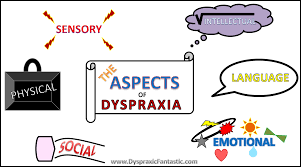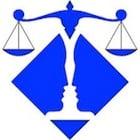Dyspraxia (DCD) Test, Diagnosis, & Assessment by Expert Psychologists In London, Birmingham Nottingham & Throughout the UK
Ask About Our Online Remote Video Enabled Version of This Psychological Assessment. Find Out More Here About the Process Here
What is A Dyspraxia Test?
“Dyspraxia is sometimes called Developmental Coordination Disorder (DCD). What is the dyspraxia test? Rather than one single dyspraxia test, our expert psychologists’ use a range of top dyspraxia tests to diagnose dyspraxia. Advanced Assessments’ dyspraxia diagnostic assessments can be completed at home, work, or in our Dyspraxia Assessment Centres in London; Birmingham or Nottingham. Download a Free Dyspraxia Screening Test to find out whether you are likely to meet the diagnostic criteria for dyspraxia specified in the Diagnostic and Statistical Manual of the American Psychiatric Association ― Fifth Edition (DSM-5). A full dyspraxia diagnostic assessment with our expert psychologists’ will be required for a formal diagnosis. Our expert psychologists’ Dyspraxia Test assesses both the emotional and physical aspects of dyspraxia.”
Call us on + 44 (0) 208 200 0078
How Do I Know Whether My Child or I Have Dyspraxia?

To find out whether your child might have dyspraxia, you can complete the online screening tests. Individuals with dyspraxia often have problems with coordination, gross motor skills, motor planning and fine motor skills. People with dyspraxia may also have other conditions such as dyslexia, autism, ADHD, anxiety, depression, sensory processing problems and dysgraphia. Find out how many of these conditions cooccur with dyspraxia here
How is the Dyspraxia Diagnosis Carried Out?
The Preliminary Dyspraxia Assessment ― Stage 1 Dyspraxia Tests
“The Dyspraxia Test used in the preliminary assessment include the DASH; and our structured interview based on the DSM-5 criteria.”Stage 1 of the Dyspraxia Assessment typically takes place five working days before the face-to-face dyspraxia diagnostic testing by phone, Skype or Zoom. This is to allow the expert psychologist enough time to understand your needs and to prepare for Stage 2 of the Dyspraxia Diagnostic Testing (the face-to-face assessment) Stage 1 of the Dyspraxia Test involves:
Working with the Expert Psychologist to Draft a Developmental History of Dyspraxia
The client or their parent will work with the expert psychologist to draft a developmental history to capture whether the symptoms of the person being assessed are consistent with dyspraxia. The developmental history will be refined during the structured interview based on the DSM-5.
Tests of Handwriting Speed and form Using the DASH or DASH 17+
This part of the assessment involves an assessment of the rate and pace of handwriting the size and formation of letters, the legibility of handwriting where the script sits on the line, and the overall coherence of the writing.

The Face-to-Face Element of the Dyspraxia Diagnosis ― Stage 2 Dyspraxia Tests
“Examples of some of the Dyspraxia Tests the expert psychologist might use in the face-to-face element of the dyspraxia diagnosis include the Berry VMI; the DASH; the Typing Test; the Movement ABC-2; the Movement ABC-2 Checklist; the BOT-2; the WISC-V; the WAIS-IV; and the Sensory Profile 2.”
The Beery-Buktenica Developmental Test of Visual-Motor Coordination
The Beery-Buktenica Developmental Test of Visual-Motor Coordination (Beery VMI), is one of the main tests used for diagnosing dyspraxia in the face-to-face assessment. The Berry VMI is a world-renowned dyspraxia test, which is used to identify visual motor problems associated with dyspraxia. Our expert psychologist will use the Berry VMI to test how well the individual can integrate motor and visual skills. The expert psychologist will undertake additional dyspraxia tests of Motor Coordination and Visual Motor Perception as part of the Dyspraxia Assessment.
A Typing Test to Evaluate The Ability to Type Using a Computer
The Typing Test will be carried out as part of the face-to-face element of the Dyspraxia Diagnosis. Using a computer helps many people with dyspraxia to overcome the difficulties with poor letter formation. However, because some people with dyspraxia find it challenging to type, using a computer through a keyboard does not always resolve their problems. In these cases, text to speech software is of great assistance in combating the substantial disadvantage faced by the individual with dyspraxia. Complete a free online typing test here.
Tests of Dexterity and Gross Motor Coordination Using The DASH or DASH 17+
The expert psychologist will use the DASH to analyse the way in which handwriting difficulties interfere with academic study, social activities and employment. The expert psychologist will identify the areas where the individual needs most support and agree on an action plan for improvement.
As part of the Dyspraxia Assessment, the expert psychologist will examine spacing, alignment, pencil control, painting, movements involving the coordination of small muscles by the eyes, finger painting posture, the grip of pencils and objects, and posture during handwriting.
Supplemental Observations of Motor Coordination to Diagnose DCD
To assess gross motor coordination further, the psychologist will use several supplemental tests; these dyspraxia tests include the Movement Assessment Battery for Children (Movement ABC-2); Movement Assessment Battery for Children Checklist ― Second Edition (Movement ABC-2 Checklist) or the Bruininks-Oseretsky Test of Motor Proficiency Second Edtion (BOT-2).
The Movement ABC-2 Checklist, allows the expert psychologist to gather information from teachers and parents about the movement of the child in typical settings. This dyspraxia test provides information on hand-eye coordination, high numbers of falls, problems moving smoothly, difficulties in coordination, clumsiness, concerns with muscle strength or tone, problems hopping running jumping and carrying out other gross motor activities, and clumsiness.
Furthermore, the expert psychologist will use the Movement ABC to assess the impact of the child’s movement whilst at home. This will include an examination of the amount of time it takes to complete activities that require physical movement and how this interacts with the child’s confidence, behaviour, psychological and physical well-being.
The ABC Movement Assessment will be used in the Dyspraxia Diagnostic Assessment to explore the relationship between the difficulties in coordination and how these impact on education. For example, how dyspraxia might impact on the ability to participate in sports and physical education.
A strategy to improve physical movement can be developed from the ABC Movement Plan; this will provide a framework for the child to improve their mobility and formulate strategies for education and employment.
For individuals, up to the age of 21, the BOT2 might be used as an additional Dyspraxia Diagnostic Test. The BOT2 evaluates motor proficiency through several engaging tests that assess fine and gross motor skills, including maintaining balance while standing on one leg, cutting out a circle or bouncing a ball.
Cognitive Assessment Using The Wechsler Intelligence Scale For Children Or The Wechsler Adult Intelligence Scale.
Individuals with dyspraxia often have difficulties with working memory and the amount of time that it takes to process information (processing speed). There are often difficulties with perceptual reasoning. The Wechsler Intelligence Scale for Children (WISC-V) and the Wechsler Adult Intelligence Scale (WAIS-IV) assesses these difficulties through tests of working memory and processing speed. Perceptual reasoning tests such as the Block Design test is particularly helpful for identifying individuals with a dyspraxic profile. Both the WAIS-IV and WISC-V include study group’s in their professional manuals which enables the expert psychologist to determine whether the examinee’s cognitive pattern is consistent with an individual who has dyspraxia (Developmental Coordination Disorder).
Sensory Profiling
The sensory profiling element of the assessment is carried out using the Sensory Profile 2, or other sensory profiling tests for adults. An individual who might have dyspraxia may have difficulties in sensory profiling. The sensory profile helps our expert psychologist determine how the individual being assessed processes information and how this might impact on their ability to function effectively at work, at home or in education. The sensory profile helps the expert psychologist to determine the individual who is being assessed strengths and areas for development.
How do I Book A Dyspraxia Assessment?
If you would like to book a dyspraxia assessment, please complete the online booking form and state your preferred booking date. If the person being assessed is a child, we would advise that you let your child’s school know that you will be booking a private dyspraxia assessment.
Our expert psychologists only carry out educational dyspraxia assessments at weekends, so your child does not have to sacrifice their education to attend the dyspraxia assessment. Bookings are confirmed once payment is received. This means that we cannot hold your preferred date without payment but may hold the time provisionally. If your chosen date is lost, we will transfer your booking to the next possible appointment or refund your booking fee if the next possible dyspraxia diagnostic appointment is not suitable for you. It is, therefore, advisable to contact us by email to confirm that you are making payment for your preferred booking before you make payment.
Filling out this form that this URL links to will not commit you to a definite booking. It will make a provisional booking for the dyspraxia diagnostic assessment, subject to payment and return of our Client Engagement Agreement. The fee covers Stage 1, the Preparatory Dyspraxia Assessment and Stage 2 the Face-to-Face Dyspraxia Assessment.
"If you require a dyspraxia assessment for legal proceedings or in connection with Immigration, please request an Expert Witness Assessment. We use additional regulated tests in dyspraxia assessments that are to be used in legal proceedings, so an educational dyspraxia assessment is not certified for use in actual or contemplated litigation."
Find Out More About Dyspraxia Tests and Dyspraxia Diagnostic Assessments
- Dyspraxia (Developmental Co-ordination Disorder) in Adults
- Adult Diagnosis Factsheet - Dyspraxia
- Developmental Co-ordination Disorder (Dyspraxia) in Children
- Tests for Developmental Coordination Disorder
- Dyspraxia - (A Complete Guide)
Find A Psychologist Near Me

Advanced Assessments - Psychologists for Legal, Education and Employment
Open Now - 24 hour Service - Open Weekends
We work throughout the UK
UK: +44 208 200 0078 Emergencies: +44 7071 200 344
180 Piccadilly, London, W1J 9HF
Also at: Westhill House, Highgate Consulting Rooms, 9 Swain's Lane, London N6 6QS
Please do not attend our office if you do not have an appointment
Twitter: @ExpertWitness_
Facebook
We are a part of the Strategic Enterprise Group
